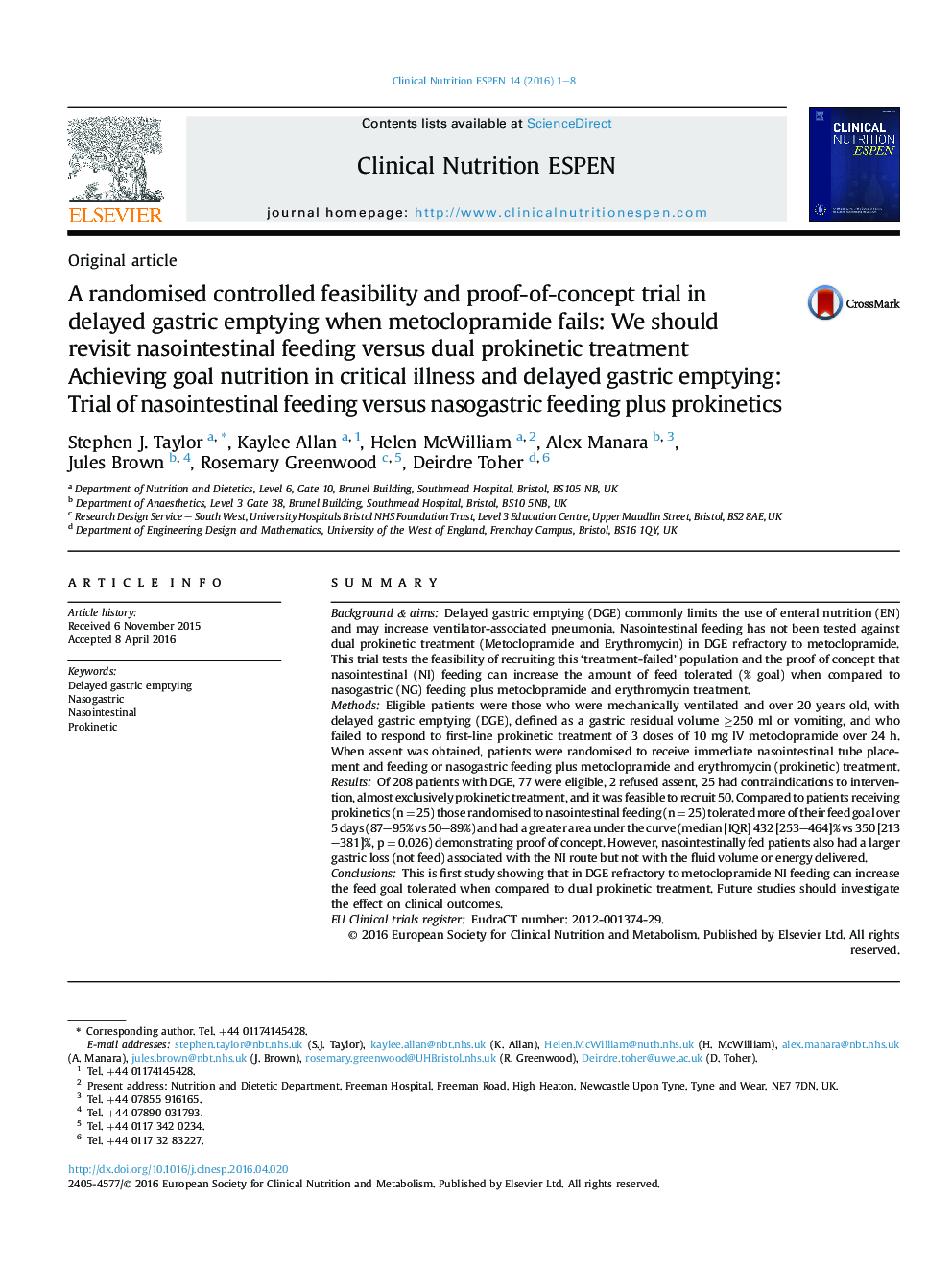| کد مقاله | کد نشریه | سال انتشار | مقاله انگلیسی | نسخه تمام متن |
|---|---|---|---|---|
| 2685854 | 1564725 | 2016 | 8 صفحه PDF | دانلود رایگان |
SummaryBackground & aimsDelayed gastric emptying (DGE) commonly limits the use of enteral nutrition (EN) and may increase ventilator-associated pneumonia. Nasointestinal feeding has not been tested against dual prokinetic treatment (Metoclopramide and Erythromycin) in DGE refractory to metoclopramide. This trial tests the feasibility of recruiting this ‘treatment-failed’ population and the proof of concept that nasointestinal (NI) feeding can increase the amount of feed tolerated (% goal) when compared to nasogastric (NG) feeding plus metoclopramide and erythromycin treatment.MethodsEligible patients were those who were mechanically ventilated and over 20 years old, with delayed gastric emptying (DGE), defined as a gastric residual volume ≥250 ml or vomiting, and who failed to respond to first-line prokinetic treatment of 3 doses of 10 mg IV metoclopramide over 24 h. When assent was obtained, patients were randomised to receive immediate nasointestinal tube placement and feeding or nasogastric feeding plus metoclopramide and erythromycin (prokinetic) treatment.ResultsOf 208 patients with DGE, 77 were eligible, 2 refused assent, 25 had contraindications to intervention, almost exclusively prokinetic treatment, and it was feasible to recruit 50. Compared to patients receiving prokinetics (n = 25) those randomised to nasointestinal feeding (n = 25) tolerated more of their feed goal over 5 days (87–95% vs 50–89%) and had a greater area under the curve (median [IQR] 432 [253–464]% vs 350 [213–381]%, p = 0.026) demonstrating proof of concept. However, nasointestinally fed patients also had a larger gastric loss (not feed) associated with the NI route but not with the fluid volume or energy delivered.ConclusionsThis is first study showing that in DGE refractory to metoclopramide NI feeding can increase the feed goal tolerated when compared to dual prokinetic treatment. Future studies should investigate the effect on clinical outcomes.EU Clinical trials registerEudraCT number: 2012-001374-29.
Journal: Clinical Nutrition ESPEN - Volume 14, August 2016, Pages 1–8
